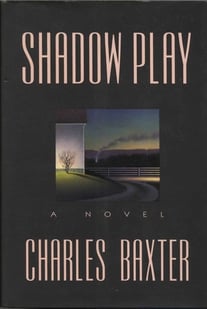Today, the state of the English language short story is too multifarious to pin down. We have the well-crafted and masterful stories of Nobel laureate Alice Munro, who drew from the great Henry James. There are the zany, first-person narrated stories of George Saunders and the frontier tales of Annie Proulx. Then there’s Charles Baxter, whose work tends to turn toward our quotidian relationships and the small interactions that make up a lifetime.
Charles Baxter has been writing for over forty years, and he has been quietly enjoyed by his readers for the entire time. When asked about the moment he “made it” as a writer, Baxter said that that moment has never happened, and he doesn’t expect it to. For many talented writers, the chance of finding fame and fortune is dismal—not that a proper author ought to set out with those goals in mind, anyway. And Baxter knows it. In an era where it can feel like there are sometimes more writers than readers, Charles Baxter is content to have a devoted group to receive his work. It makes sense that a writer who is content with a modest audience is so gifted at rendering the intimacies of life. His work is preoccupied with chance encounters, strangers, family, and the way we treat those around us. His newest short story collection, This is What I Want You to Do, published February 2015, explores how we may succumb to living the lives that others have in mind for us. His stories involve remarkably interrelated lives: that of victim and criminal, or of a mechanic who does repair work for the doctor who delivered his wife’s baby. His stories offer a marvelous complexity, such as one in which a gay man strikes up a conversation with a homophobic Holocaust survivor. What do we owe to strangers, and how estranged are we anyway? Baxter asks us these questions and more.
It makes sense that a writer who is content with a modest audience is so gifted at rendering the intimacies of life. His work is preoccupied with chance encounters, strangers, family, and the way we treat those around us. His newest short story collection, This is What I Want You to Do, published February 2015, explores how we may succumb to living the lives that others have in mind for us. His stories involve remarkably interrelated lives: that of victim and criminal, or of a mechanic who does repair work for the doctor who delivered his wife’s baby. His stories offer a marvelous complexity, such as one in which a gay man strikes up a conversation with a homophobic Holocaust survivor. What do we owe to strangers, and how estranged are we anyway? Baxter asks us these questions and more.
While he sets his stories all across the country, his native Midwest is his preferred backdrop. “There is something about the Midwest that I’ve tried to get into my stories,” Baxter said, “the odd politeness of the people here, their secretiveness, their wish to do good.” Interested observations like this drive Baxter’s writing. His highest objective is not to lie. Instead, he wishes to present characters and situations that reflect things that readers will find rooted in truth.
When beginning a first draft, Baxter often finds all he has previously learned about writing fiction no longer applies. He has a shovel; he is digging; and he has no idea where he is exactly going. All he knows is he digs on. Despite this admitted blindness, Baxter, who also teaches creative writing in Minnesota, has some truly perceptive thoughts about fiction.
 Baxter has written in a cornucopia of forms, including poems, novels, short fiction, and critical essays. One of his most famous essays, “Against Epiphanies,” presents an argument that is rather apparent in its title. Baxter argues that in short fiction, the epiphany is often used to suddenly conclude a story when components of it have not been properly interrelated, much as a way to circumvent deliberate dramatic organization. Epiphanies, he says, are not only rare, but often misleading, and those that we have in life are often wrong.
Baxter has written in a cornucopia of forms, including poems, novels, short fiction, and critical essays. One of his most famous essays, “Against Epiphanies,” presents an argument that is rather apparent in its title. Baxter argues that in short fiction, the epiphany is often used to suddenly conclude a story when components of it have not been properly interrelated, much as a way to circumvent deliberate dramatic organization. Epiphanies, he says, are not only rare, but often misleading, and those that we have in life are often wrong.
Baxter has argued in the past for art’s uncertain purpose. It does not necessarily make us better people, and it ideally enlightens us, but all it can surely offer is pleasure. As a teacher, he has also worked to unravel many of the philosophies and dicta of the creative writing curriculum. For instance, fiction workshops endlessly insist on finding out what your character wants in order to write a scene. Life, Baxter argues, is rarely so simple. Much of life involves acting on behalf of others, doing what others want, with the hope that their favor will hopefully come back to you. We act constantly as cooperative beings—compromising, exchanging, becoming surrogates for the desires of others, and creating webs of effort that will ideally benefit all in the end.
His insight always comes back to fiction, which is the true object of his devotion. “Anybody can think for a living without being burned to a crisp,” he said in an interview: “Fiction requires the heart and the mind and the guts and the genitals, and you have to set them all on fire.” In eschewing the comforts of epiphanies and tidy endings, Baxter produces short fiction—a real life fiction—that reflects the small marvels of relationships. He does so in stories that are comprehensible while still bearing the splendid inconclusiveness of every-day life.









